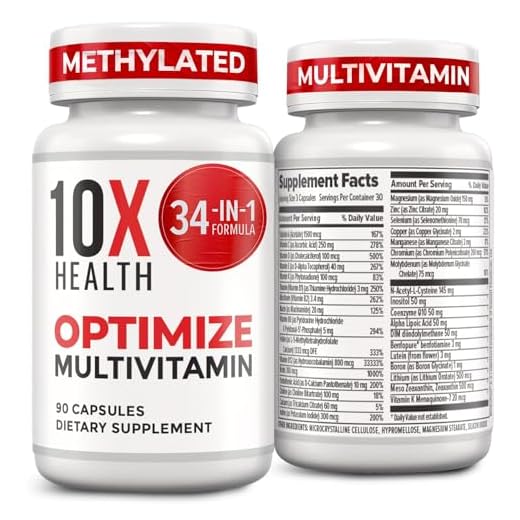







Multivitamins can help with specific deficiencies and overall well-being, but they can't fully make up for a poor diet. Nutrient absorption depends on various factors like vitamin form and interactions. They're not a substitute for a healthy diet. Whole foods offer diverse nutrients and health benefits that multivitamins might lack. Consulting healthcare providers for personalized guidance and suitable choices is crucial. For informed decisions aligning with your health goals and nutritional needs, consider the broader picture. Your understanding of supplementation and diet can be enhanced through expert advice.
Key Takeaways
- Multivitamins can help fill nutrient gaps in a poor diet.
- They are not a substitute for a balanced diet.
- Whole foods provide more benefits than multivitamins alone.
- Nutrient absorption from whole foods is more efficient.
- Consult healthcare providers for personalized advice on supplementation.
Nutrient Deficiencies and Multivitamins
If you're wondering whether multivitamins can compensate for a poor diet, understanding the relationship between nutrient deficiencies and multivitamins is essential. Nutrient balance is vital for overall health, and deficiencies can lead to various health issues. While multivitamins can be effective in addressing specific nutrient deficiencies, they are not a cure-all for a poor diet.
Supplement effectiveness varies depending on the individual's nutrient needs, absorption capabilities, and the quality of the supplement. Multivitamins can help bridge the gap in cases where diet alone may not provide sufficient nutrients. However, relying solely on multivitamins to make up for a poor diet is not recommended.
It's essential to pursue a balanced diet rich in fruits, vegetables, whole grains, lean proteins, and healthy fats to guarantee adequate nutrient intake. While multivitamins can be a convenient way to supplement your diet, they should complement, not replace, a healthy eating plan. Remember, it's always best to consult with a healthcare provider or a registered dietitian to determine the most appropriate approach for your individual nutritional needs.
Understanding Multivitamin Absorption
Multivitamin absorption depends on various factors such as the form of the vitamin, interactions with other nutrients, and individual digestive health. Absorption rates and bioavailability vary among different forms of vitamins. For instance, fat-soluble vitamins like A, D, E, and K are better absorbed when taken with a meal containing fats. On the other hand, water-soluble vitamins like C and B-complex vitamins are generally more easily absorbed on an empty stomach.
Nutrient interactions also play an important role in multivitamin absorption. Some nutrients enhance or inhibit the absorption of others. For example, vitamin C can enhance the absorption of iron, while calcium can hinder iron absorption. Necessary dosages are essential to make sure that the body can absorb and utilize the vitamins efficiently. Taking excessive amounts of certain vitamins may lead to poor absorption or even toxicity. Understanding these factors can help you make well-informed decisions when choosing and taking multivitamins.
Impact of Multivitamins on Health

Understanding the impact of multivitamins on your health requires considering various factors beyond just absorption rates and bioavailability. Vitamin absorption plays an important role in determining the effectiveness of multivitamins in supporting your overall health. When taken as directed, multivitamins can provide essential nutrients that your body may be lacking due to dietary gaps. These supplements can help fill nutrient deficiencies and contribute to your overall well-being by supporting functions such as immune health, energy production, and metabolism regulation.
Research suggests that multivitamins can offer various health benefits when used as part of a balanced diet and healthy lifestyle. However, it is important to note that multivitamins are not a substitute for a nutritious diet. While they can complement your dietary intake, they should not be solely relied upon to meet all your nutritional needs. It is crucial to consult with a healthcare provider before starting any new supplement regimen to ensure that it aligns with your individual health goals and needs.
Choosing the Right Multivitamin
In order to select the most appropriate multivitamin for your needs, consider factors such as your age, gender, and specific health goals. Supplement effectiveness varies based on the formulation and quality of ingredients. Look for multivitamins that include essential nutrients like vitamins A, C, D, E, K, and B-complex vitamins, as well as minerals such as calcium, magnesium, and zinc. Dosage recommendations are important; make sure the multivitamin provides adequate amounts of each nutrient without exceeding safe limits.
When choosing a multivitamin, consider whether you have any specific deficiencies or health conditions that may require additional supplementation. For example, pregnant individuals may need prenatal vitamins with higher levels of folic acid and iron. Consulting with a healthcare provider or a registered dietitian to determine the most suitable multivitamin for your individual needs is vital. Keep in mind that multivitamins are meant to complement a healthy diet, not replace it entirely. Selecting a high-quality multivitamin tailored to your requirements can help fill potential nutrient gaps and support overall well-being.
Multivitamins Vs. Whole Foods

When it comes to comparing multivitamins with whole foods, it is crucial to understand the unique benefits and limitations of each in supporting your overall nutrition. Whole foods provide a wide array of essential nutrients, promoting dietary balance and offering micronutrient diversity that is often lacking in isolated vitamin supplements. The synergistic interactions of nutrients in whole foods can enhance nutrient absorption, guaranteeing you receive the maximum benefit from what you eat.
On the other hand, multivitamins can be a convenient way to fill nutrient gaps in your diet, especially for individuals with specific deficiencies or restricted diets. They offer a quick and easy solution to ensure you meet your daily recommended intake of essential vitamins and minerals. However, they may not provide the same health benefits as whole foods due to the lack of fiber, antioxidants, and other beneficial compounds found in natural sources.
Risks of Relying Solely on Multivitamins
To solely rely on multivitamins for your nutritional needs may pose risks due to potential nutrient imbalances and the absence of essential dietary components found in whole foods. While multivitamins can be a convenient way to supplement your diet, they are not a substitute for a balanced and varied eating plan. Your dietary habits play an important role in providing your body with the necessary nutrients it needs to function at its best. Depending solely on multivitamins for nutrition could lead to overconsumption of certain vitamins and minerals, which in turn may have adverse effects on your health. Moreover, whole foods contain a combination of vitamins, minerals, fiber, and other essential nutrients that work synergistically to promote overall well-being. By relying solely on multivitamins, you may miss out on these benefits and potentially harm your health in the long run. It is important to view multivitamins as a supplement to a healthy diet rather than a replacement for nutritious whole foods.
Multivitamins for Specific Diets

Multivitamins can be customized to supplement specific dietary needs, enhancing the nutritional profile for individuals following specialized diets. For those following a vegan diet, it can be challenging to obtain sufficient levels of certain nutrients like vitamin B12, iron, and calcium solely from plant-based sources. Vegan multivitamins are formulated to address these potential deficiencies by providing the necessary vitamins and minerals that may be lacking in a plant-based diet.
Similarly, individuals on gluten-free diets may benefit from multivitamins designed to support their nutritional requirements. Gluten-free diets, often followed by individuals with celiac disease or gluten sensitivity, can sometimes be deficient in nutrients like fiber, iron, and B vitamins due to the exclusion of wheat, barley, and rye. Gluten-free multivitamins can help bridge these nutritional gaps and make sure that essential vitamins and minerals are not overlooked in the absence of gluten-containing foods.
Choosing the right multivitamin tailored to your specific dietary needs can complement your eating plan and help you achieve top-notch nutrition while following a vegan or gluten-free diet.
Consultation With Healthcare Professionals
For personalized guidance on selecting the most suitable multivitamin for your specific dietary needs, seeking advice from healthcare professionals can provide valuable insights and recommendations. When contemplating whether multivitamins can make up for a poor diet, healthcare professionals play an essential role in evaluating your individual nutritional requirements. They can offer dietary guidance tailored to your specific needs, helping you understand which vitamins and minerals may be deficient in your diet and whether supplementation is necessary.
Healthcare professionals, such as registered dietitians or doctors, have the expertise to assess your dietary habits, identify potential deficiencies, and recommend appropriate interventions. By discussing your diet and lifestyle with a healthcare provider, you can receive personalized suggestions on whether multivitamin supplements are needed to fill any nutritional gaps. Additionally, they can advise on the quality and dosage of supplements to make sure they complement your diet effectively.
Ultimately, consulting with healthcare professionals can help you make informed decisions about incorporating multivitamins into your routine, ensuring that any supplementation aligns with your overall health goals and dietary requirements.





